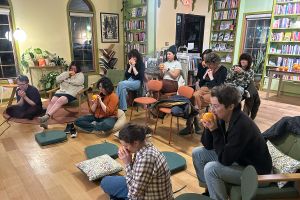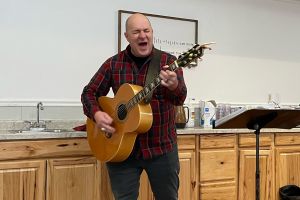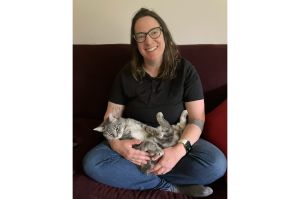December 11, 2024
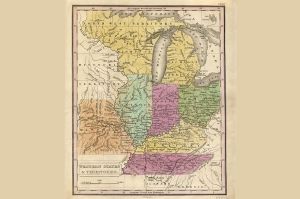
Whose Heartland?
When a presidential campaign leans into the idea that certain people – say, Haitians – don’t belong in the Midwest, it begs the question of who gets to claim the Heartland as their own. The global roots of the Heartland, on the latest Inner States.
November 20, 2024

The Third Time Rita Left Chapter 3: Missing Rita
Kayte’s cat Rita had been missing for months when Kayte started to hear about sightings in a nearby neighborhood. She went over there with a pillowcase. It didn’t go well. The election results that November didn’t help.
November 13, 2024

The Third Time Rita Left Chapter 2: Finding Rita
When Kayte’s cat Rita escaped at the Kroger, it wasn’t the first time she’d left. In Chapter 2 of The Third Time Rita Left, we hear how she came to Kayte’s house, and left, and then snuck back in, almost in disguise.
November 6, 2024
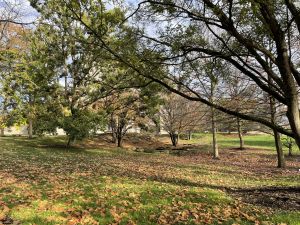
How Are You Feeling?
It's the day after a momentous election. We want to hear from you.
November 6, 2024

The Third Time Rita Left Chapter 1: Losing Rita
For months after Rita escaped, Kayte didn’t lose hope. There were other problems in the world, but things were looking up. The U.S. was about to elect its first female president. But as she kept looking for Rita, all of that would change.
October 30, 2024
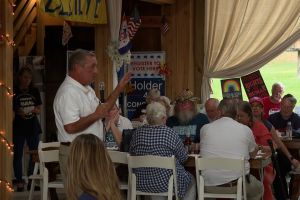
The Elusive Rural Indiana Democrat
If it’s hard to imagine getting elected as a Democrat in rural Indiana, you’ll understand why so few people try. This election cycle, though, some are. We look into what they hope to accomplish, and how they're trying to do it.
October 16, 2024
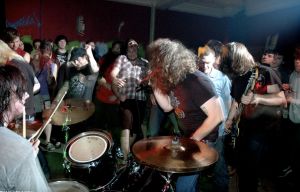
Fitting In Is Easy. Midwest Punk Is Harder.
Raechel Anne Jolie came up in punk scenes around Cleveland in the 90s and early 2000s, and wrote a memoir about that and more, called Rust Belt Femme. She says when you don't fit in to mainstream society, there's plenty of community to be found on the outskirts of it.
October 2, 2024
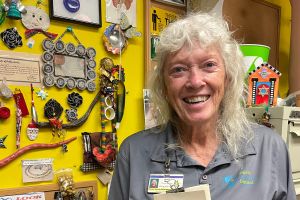
Your Trash Is Mary's Treasure
Mary Hunter runs Materials for the Arts at the Monroe County Waste Reduction District—the recycling center. She’ll find a place for almost anything you bring her.
September 18, 2024

A Long-Dead Unionist’s Biggest Fan
Allison Duerk didn’t go to college to become the director of a museum devoted to Eugene Debs, one of the U.S.’s most famous socialists, but she’s pretty happy it worked out that way.
September 4, 2024
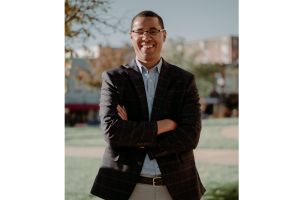
What's Fun About City Government? Ft. Isak Asare
So many of us are happy not to be involved in local government. Bloomington City Councilmember Isak Asare talks about its satisfactions, and how questions of protocol are also questions of justice.
August 21, 2024
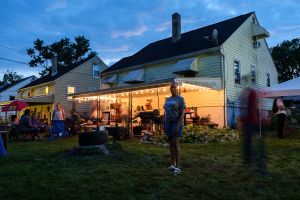
Justin Carney’s Photography Reworks Family Grief
When Justin’s grandmother died, her siblings stopped getting together. Then Justin started taking pictures, and things changed. Justin Carney is an artist who uses photography to think through family grief. It seems to be helping.
August 7, 2024

Amy Oelsner and Girls Rock Bloomington Start Rocking
In the past 12 years, singer-songwriter Amy Oelsner has released 9 albums. We talk about grief, creativity, and why she started Girls Rock Bloomington, a music program for girls, and trans and nonbinary youth.
June 28, 2024

Who and How to Remember
A walk among memorials and public art pieces in the fall of 2021. We talk with creators, participants, and passers-by about the meaning of public art, about Native presence in a state named for Indians, about immigration, Christopher Columbus, Columbus, Indiana, who we choose to remember, and how.
June 21, 2024
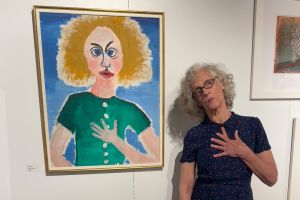
Nanette Vonnegut: Self-Portrait at 14
Nanette Vonnegut on painting and getting older, and the late writer Dan Wakefield on Indianapolis, spiritual writing, and his friend, Kurt Vonnegut.
June 14, 2024
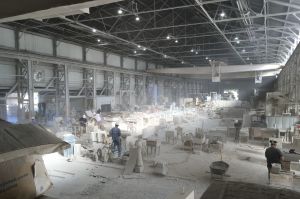
Joyce Jeffries and the Cutters
Limestone work used to be quite dangerous. Joyce Jeffries remembers workers, including her grandfather, dying or getting injured. It’s gotten safer though. This week, Joyce, and others, on limestone.
June 7, 2024

Southern Rock, Midwestern Soul
Music critic Stephen Deusner on the book he wrote about the Drive-By Truckers, the South, and more. Plus, a review of a locally-born band that made President Obama’s best-of list.
May 31, 2024
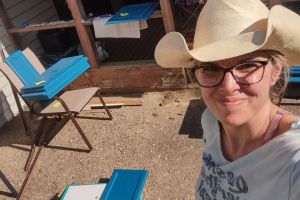
Doubting Her Paralysis
When Marabai Rose was 38, a mysterious paralysis came over her. The challenges of getting diagnosed – and treated – in this episode, based on her book, Holding Hope.








